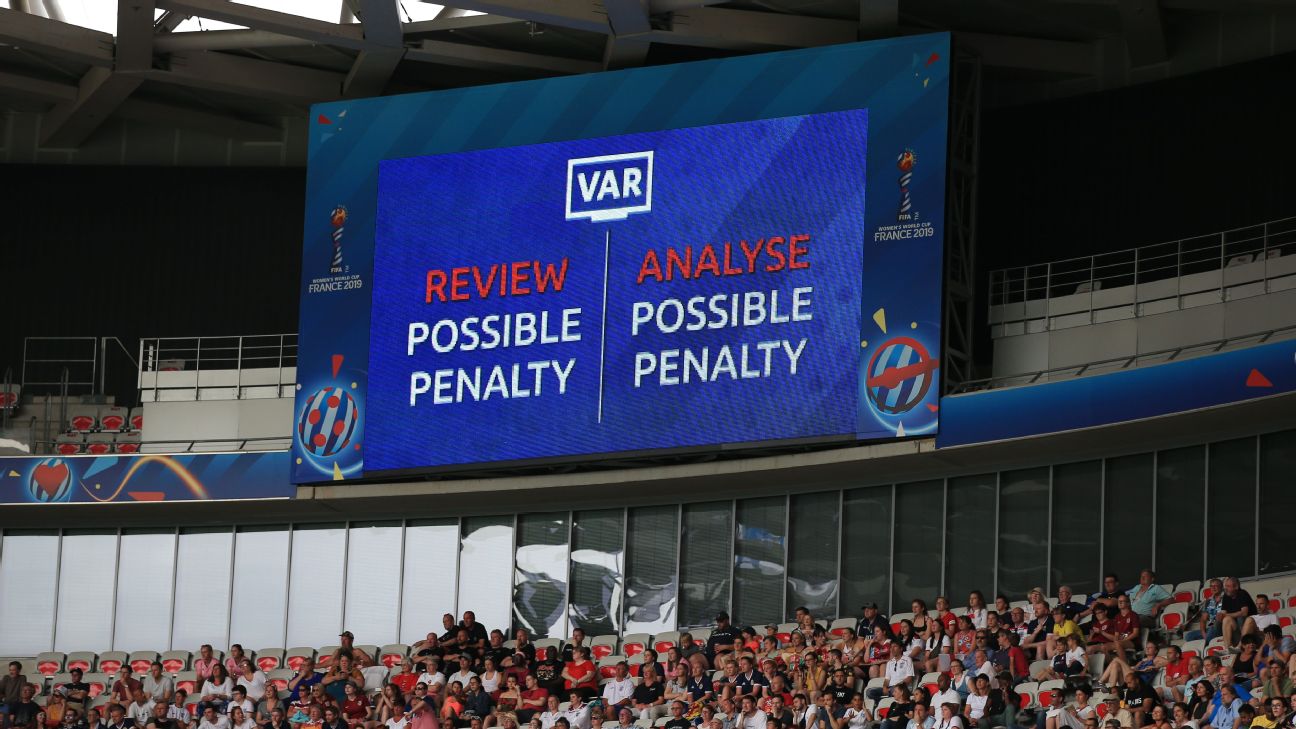




To reduce the likelihood of them being sent off, goalkeepers at the Women’s World Cup will not be booked for stepping off the goal line during penalty shootouts, soccer’s law-making body, IFAB, said on Friday.
New regulations brought in from June 1 by IFAB mean that goalkeepers must have one foot at least partly on the line when the penalty is taken and can neither stand behind nor in front of it.
The law currently states that if a goalkeeper commits an offense, the kick must be retaken and the goalkeeper cautioned.
– FIFA Women’s World Cup: All you need to know
– Full Women’s World Cup fixtures schedule
IFAB said that it had approved a request from global governing body FIFA for a temporary dispensation from the requirement to yellow card a keeper who is penalized for the offense.
“Both FIFA and the IFAB … believe that the requirement to caution an offending goalkeeper in Kicks from the Penalty Mark (KFPM) in matches with Video Assistant Referees is not necessary and risks unfairly distorting the KFPM if a goalkeeper is sent off,” IFAB said in a statement.
IFAB added that the presence of VAR increases the likelihood of offenses being detected.
“As goalkeepers are likely to face a number of kicks during KFPM, there is a higher risk that a goalkeeper will be sent off for receiving a second caution if already cautioned in normal time, or two cautions during the KFPM,” the statement said.
Goalkeepers will continue to be booked for coming off the line before penalties are taken in “normal time,” as IFAB said it would be unfair to those who had already been cautioned for similar offenses if they changed the rule midway through the tournament.
“After the end of the tournament the disciplinary sanction for offenses committed by the goalkeeper at penalties might be further discussed within IFAB’s panels,” the chairman of FIFA’s refereeing committee, Pierluigi Collina, said in a statement.
The issue of keepers being penalized by VAR for coming off the line has been in the spotlight at the Women’s World Cup.
Three goalkeepers so far have been shown yellow cards in the tournament for contravening this law. In France’s game with Nigeria, Wendie Renard missed her first attempt at a penalty but after VAR intervened, goalkeeper Chiamaka Nnadozie was cautioned for coming off her line. Renard was given the chance to retake the penalty and scored.
Scotland was eliminated from the tournament after their keeper, Lee Alexander, saved a stoppage-time penalty against Argentina only to be penalized for coming off her line.
Argentina’s Florencia Bonsegundo scored on the retake to snatch a draw that sent Scotland crashing out.
Three penalties have been retaken at the World Cup because the goalkeeper did not have at least one foot on the goalline, sparking a debate about whether VAR should rule on the matter.
Prior to the rule change that went into effect June 1, goalkeepers were required to have both feet on the goal line when a penalty kick was taken. But that rule was sporadically enforced, goalkeepers often given leeway to move off the line. When the U.S. won the 1999 World Cup final in a penalty shootout against China, replays showed American goalkeeper Briana Scurry moved forward several steps before saving Liu Ying’s shot from the penalty spot.
In an interview with FIFA, Collina alluded to the inconsistent enforcement of the old rule.
“We discussed this matter with players and coaches and eventually decided to help goalkeepers by allowing them to have only one foot on the goal line instead of two,” Collina said. “Since that change their job is definitely easier than before, and it is also easier for them to respect the current law than the previous version. Then, if a law exists, referees must enforce it — particularly when tools like VAR or GLT are available.”
The World Cup’s last-16 matches begin on Saturday.
Information from ESPN’s Tom Hamilton and Graham Hays, as well as Reuters, contributed to this report.
